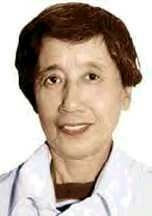 |
Ayako Totsuka succeeded in a world where few women dared to tread, or better yet, were not expected, nor encouraged, to tread upon.
Ayako became Japan’s forefront “career woman,” helping both change the term from an insult to a compliment, and opening doors for future career women.
Even recently, women in the workforce, better known as “office ladies,” were solely present for male clients to admire. Calling someone a “career woman” meant to say that the woman was unethical, primarily for having chosen a career over her obligations at home, particularly those of caring for a man or her children. This title is still used by some traditionalists as a derogatory term.
Ayako is seen as the woman who broke free of that stereotypical role by fervently working to prove that a career woman was a woman forging ahead into the future rather than simply living in the expected stereotypical, male-favored roles. Her desire was not to belittle the role of homemakers, though, but to gain respect for non-traditional roles as well. So while the battle for equality raged on, Ayako gave many Japanese women the confidence to excel in their desired fields. It is said that the reason real career women even exist in Japan is greatly due to her efforts and success.
Despite the time period she was raised in, Ayako’s family did not expect her to submit into a conventional role but instead gave her the freedom and encouragement to go beyond it. Born in 1913, Ayako graduated from the English Department of Japan Women’s University in 1936. Her father was a cabinet minister during WWII, and her mother served as a constant inspiration to her by urging her to excel. Thanks in part to her father’s influence, and in great part to her incredible work ethic and perseverance, Ayako soon became the first, and then only, female employee of Japan Travel Bureau, a major Japanese corporation. She was adamant about dispelling the notion that only men could be given positions of prestige and weighty jobs, and so, she worked hard to outdo her male colleagues’ work performance. Even during one of Japan’s most oppressive periods, Ayako broke barriers with her unstoppable drive.
Japan Travel Bureau started Tabi, a travel magazine, in 1947 and placed Ayako in the position of editor-in-chief. At the time, Japan’s economy was no where near where it has been in recent years, yet Ayako turned the magazine into a success by focusing on local destinations and using what is considered to be a poetic writing style. She continued with the magazine throughout the 1950’s, helping create a large burst of growth in the travel industry in Japan.
Consequently, travel grew to become her greatest passion and she became accustomed to spending most of the year traveling abroad and throughout Japan. In 1961 she resigned from her position at the magazine to focus on her writing, and to continue with her traveling regimen. She became a renowned author, writing bestsellers such as Tzuiso Kurao and Dry Mama. Ayako continued writing even into her 70’s, and her articles were published regularly, even into the 1990’s.
Ayako chose to remain unmarried, again, defying the notion that a woman must be married to lead a truly full life. She realized that her lifestyle, both in her traveling years, and in her years earnestly devoted to the corporate world, was not conducive to marriage, and she simply was unwilling to compromise her goals and passions.
Always in control of her life and surroundings, Ayako chose to spend her last years in a coastal nursing home. She had made it clear that she wanted no public announcement of her death, allegedly stating that because she felt it was everyone’s destiny to die, she did not want to make a “nuisance” of her own life or death. So, upon her passing in August of 1997, the funeral was not announced publicly.
Ayako’s quietly defiant life made a deep impression on Japanese women, past and present. She helped reconstruct the definition of the ideal Japanese woman from one tied only to traditionalist ideals to one with the ability to make other choices. Though equality is still a work in progress, Ayako blazed the trail of feminism simply by following her life’s passions.
Page created on 5/19/2003 12:00:00 AM
Last edited 5/19/2003 12:00:00 AM
